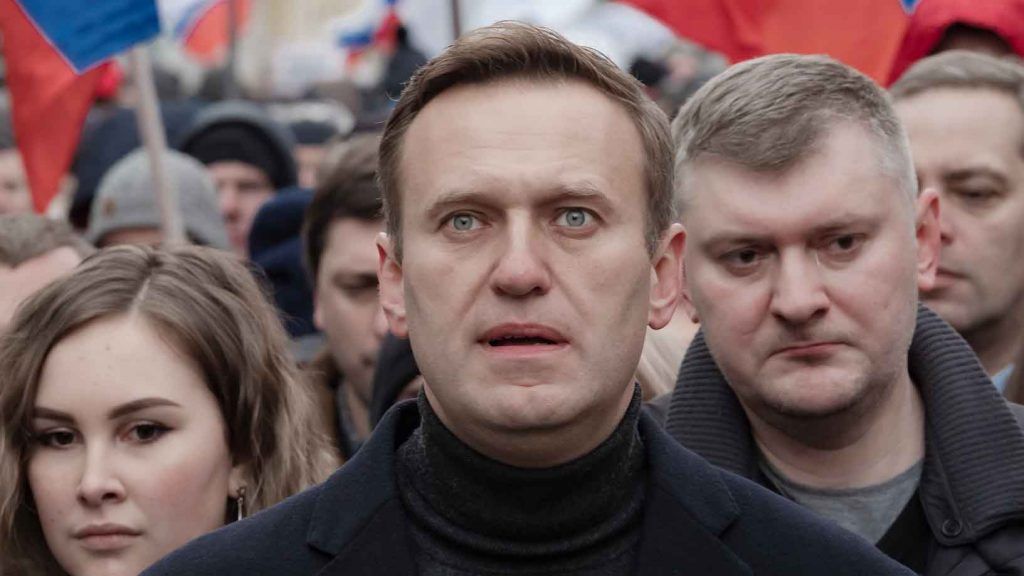YouTube and other foreign tech companies bow to Kremlin pressure amid Navalny protests
By Justin Sherman | February 26, 2021
 Russian opposition leader Alexey Navalny. Credit: Michał Siergiejevicz via Flickr. CC BY 2.0.
Russian opposition leader Alexey Navalny. Credit: Michał Siergiejevicz via Flickr. CC BY 2.0.
Russian opposition leader Alexey Navalny has routinely been in the news for roughly half a year. Last August, the US State Department says, Russian agents tried to poison him with a banned nerve agent. When Navalny returned to Moscow after treatment in Germany, Russian authorities promptly arrested him. Then they brutally repressed pro-Navalny protests in January. As Navalny sat in jail awaiting transport to a penal colony, Russian state media resurfaced his old anti-immigrant statements in an attempt to diminish his popularity. Navalny is clearly facing a lot of enemies, Russian state security and the Kremlin included. Yet far from acting alone, a less recognized set of players has aided the Kremlin’s attempts to suppress the protests in support of him: foreign tech companies.
In many ways, the recent protest movement took place online as well as in the streets. Protestors tweeted out many videos of the mass protests in Russia that began in January. Hashtags like #freeNavalny and #23January were trending on the video sharing platform TikTok. Protestors used Telegram, the encrypted messaging app, to plan, share information, and disseminate evidence of police violence. But just as law enforcement beat and arrested protestors on the streets, Russian internet regulators tried to stamp out dissent online. The way they did so belies the myth that authoritarian regimes always control the internet directly: With much of the internet in the hands of the private sector, autocratic governments like Russia’s can instead tap companies on the shoulder to implement their censorship, surveillance, and control policies.
In the days leading up to the Navalny protests, Russia’s internet and media regulator worked to get ahead of the swelling discontent. Officials at Roskomnadzor sent orders to Russian-language social media platform VKontakte to remove protest content. Soon the regulator was sending orders to foreign platforms like TikTok and YouTube, as well. They had been hosting content calling for Russian youth take part in protests, which the government was calling “illegal mass actions.”
By January 22, Roskomnadzor was reporting that the platforms had in fact removed protest content. YouTube, it said, stopped distributing 50 percent of the calls for youth to participate in protests that the regulator had identified; on January 23, it said TikTok had removed 93 percent of identified messages, and VKontakte had removed 87 percent of them. The content didn’t totally vanish; on January 27, Roskomnadzor fined Facebook, Instagram, Twitter, TikTok, Vkontakte, Odnoklassniki, and YouTube for failing to comply with all of its takedown orders, and the regulator soon expanded its censorship orders to include the independent newspaper Novaya Gazeta and content about police violence and protestor injury—a tactic for downplaying the state’s violent crackdown on peaceful demonstrators. But overall, in just a matter of days, many of the wishes of an authoritarian government were projected through private companies onto the internet.
Social control is not just a technical exercise; the Kremlin has long recognized this fact. In tandem with digital censorship and surveillance, the state uses traditional, physical mechanisms of coercion to suppress political resistance. As the government was ordering social media content removed and undoubtedly monitoring posts on the encrypted messaging app Telegram, it was also detaining thousands of Russians and wielding brutal police violence against protesters.
By complying with Moscow’s legal notices, internet firms serve to lower the Kremlin’s political control costs: The government itself doesn’t have to carry out the measures. It makes the firms implement the government’s so-called domestic internet law, for instance, or, in the case of the Navalny protests, gets companies to remove content from social media platforms that it finds politically threatening.
Russia’s example underscores the extent to which social media like TikTok and VKontakte and encrypted apps like Telegram function as both mechanisms of political resistance and mechanisms of repression. Activists organize and publicize protests through the apps, but governments, depending on the technology and their own capabilities, can potentially use the applications to monitor and suppress resistance. And many of these internet companies, several of which are incorporated beyond Russia, seem to have few qualms about complying with an authoritarian government’s information-control directives. At this point, they’re following a well-established pattern and precedent.
Many researchers and pundits have questioned whether technology helps or hurts autocrats. But the debate often ignores the shades of gray when it comes to technology’s role in modern protest and repression. Internet and digital technologies form a complex ecosystem leveraged for organization, communication, and state repression all at once. In Russia, foreign internet companies were complicit in the Kremlin’s efforts to suppress protest content that they had been hosting.
It remains to be seen what, if any, further internet restrictions will be put into place as the Kremlin assesses the future. But as the government continues its crackdown on Russian citizens, it’s essential to remember that melding online censorship measures with traditional forms of coercion is a feature of the Kremlin’s strategy. It’s also not unique to Russia: Witness Silicon Valley tech giants entering the Chinese market and subjecting themselves to authoritarian internet policy demands or recent moves by the Indian government to impose rules on social media companies following disputes over politicians’ hateful statements. Internet companies that follow the kinds of censorship orders that Russia’s internet regulator issued are complicit in the broader social, economic, and, in this case, especially, political picture of autocratic repression.
Together, we make the world safer.
The Bulletin elevates expert voices above the noise. But as an independent nonprofit organization, our operations depend on the support of readers like you. Help us continue to deliver quality journalism that holds leaders accountable. Your support of our work at any level is important. In return, we promise our coverage will be understandable, influential, vigilant, solution-oriented, and fair-minded. Together we can make a difference.
Keywords: Alexei Navalny, protests, social media
Topics: Disruptive Technologies














